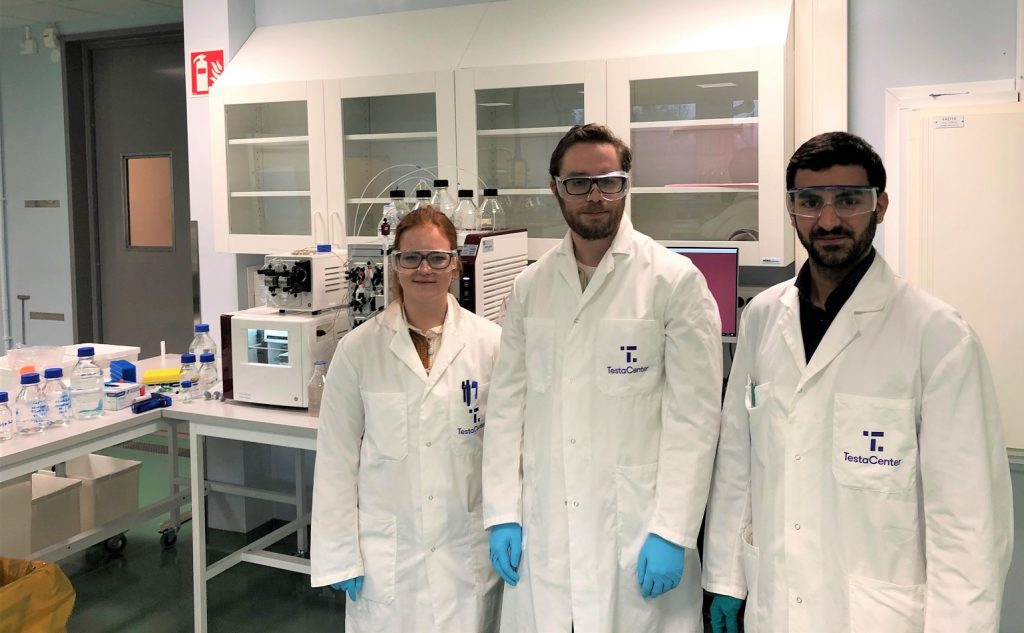Sara Mangsbo and her research group just now spend their last month at Testa Center. In pursuit of new cancer therapies, they have tried to create a stable cell line that will hold protein production on a larger scale. The time spent at Testa Center has been valuable and has provided new insights about what works and what does not work.

Sara Mangsbo 
Triinu Linkgreim, Martin Lord & Antonino Napoleone
Sara has many different assignments and roles. She is a senior associate lecturer of protein drugs and an associate professor in experimental clinical immunology at Uppsala University. She is also head of research for the company, Ultimovacs, and was recently named Entrepreneur of the Year in 2019 by the business magazine, Veckans Affärer. As Sara is working both in the academia and business, she has gained insight into how these two worlds work, together and individually.
“For me, research is a journey where you take different steps and learn new things along the way. There is a lot of knowledge and expertise at the Testa Center and Uppsala University, but a stronger link between these two worlds is needed so that the knowledge is spread further,” says Sara.
After her time at the Testa Center, Sara also sees the value of the intersection of research and production.
“This time here has been important to us. Instructive. We can conduct research and development, but knowledge about production is at the Testa Center. This is where we meet. This collaboration is also an important step for us to develop new products,” says Sara.
“Uppsala should now focus even more to strengthen the link between industry, academia and health care, and become better at finding the synergies,” she adds. “But what Uppsala’s immunology groupings are good at is to always keep the focus on the patient for new research and development. I believe that is important.”
In immunology, researchers are grappling with unresolved questions such as: How to make a cancer treatment more personalized? What is a healthy immune system? What is needed for the patient to respond to a treatment? The research project that Sara and her team have been working on includes the development of immunotherapies—primarily by developing therapies that can be given to patients early in their illness. The goal is to find new ways to create and activate tumor-targeting immune cells.
“Today we know, in general, much more about the importance of T-cells for the body’s defense against tumors. The goal is to create a product/platform that builds and activates the body’s own T-cells. Therefore we must, among other things, find out if the body itself can produce as many tumor-specific T-cells as needed,” says Sara.
At Testa Center, they have scaled up the production of a protein from a stable cell line. Sara’s group, together with SciLifeLab’s drug discovery and delivery (DDD) platform, has developed a stable cell line for protein scale up activities. At Testa Center, they have incrementally carried out the scale up process. Sara says that the Testa Center team, with Andreas Andersson and Annika Morrison, has provided much help and guidance, as has Anders Olsson and his team at SciLifeLab’s DDD platform. The collaboration has worked well and creates significant opportunities for this type of research project.
“With common forces you find the best way forward. That’s how I’ve always thought and worked, and that idea exists at both SciLifeLab and Testa Center,” says Sara.




